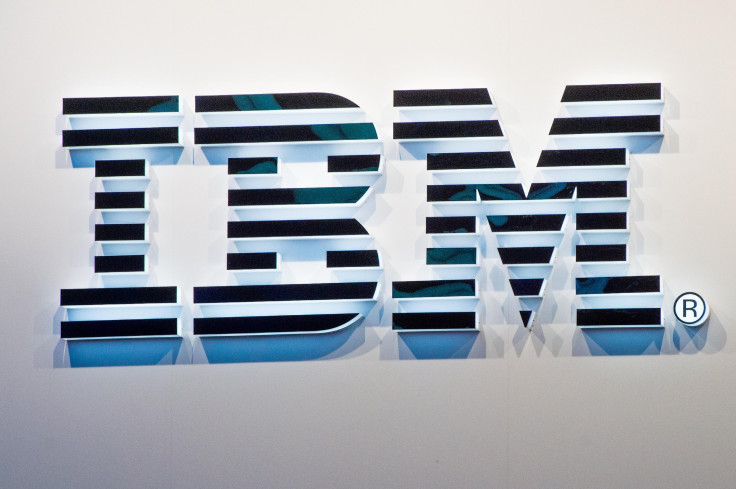It's Time For Startups To Use AI To Battle Tech Giants In Patent Wars
Technology giants such as Alibaba and IBM are eating startup innovators' lunch. These behemoths are seeking to devour even more market share by publishing patents at unprecedented speed in emerging technologies such as blockchain.
As some of the richest companies on the planet, the corporations have the resources to manage the laborious search of existing patents and to overcome the outdated administrative hurdles so that they can file for intellectual property rights.
Patents are definitely old school. Patent laws started with the rise of the nation-state, so they began in the 18th century and were then fully developed in the 19th century. Some changes may have been made to reflect new technologies, but the basic patent laws haven't evolved to meet the needs of the 21st century.
We're patenting ideas based on today's high-tech of artificial intelligence and blockchain with laws that were established centuries ago.
All this puts early-growth companies with game-changing inventions at a huge disadvantage.
Getting a patent is one of the most important strategic decisions a business can take. A patent not only protects a business idea from copycats, but it can also increase the value of the young company.
One of the reasons value increases is because a patent can block others from a market. Once a startup has it, they can make sure nobody else will enter that particular segment.
In a recent study, conducted by KISSPatent on patents in the specific field of blockchain, results showed an arms race between Alibaba and IBM. The Chinese e-commerce giant has published 10 times more blockchain-related patents than IBM in 2020, a year when blockchain patent numbers are generally skyrocketing. More blockchain-related patents were published in the first half of 2020 than in all of 2019, a year that had already seen three times more blockchain patents published than in 2018.
But amid the frenzy, alarm bells should be ringing for technology entrepreneurs. Blockchain-only companies themselves are generally not filing for patents, Fortune500 companies are. That means, in their own field, where they in fact are focused on innovating and inventing, blockchain companies are leaving the field wide open for some of the largest and wealthiest corporations to seize their territory.
Time to play defense
Blockchain establishes a decentralized ledger that cannot be tampered with and needs no middlemen to transfer value. The revolutionary technology is driven by passionate developers and believers in its potential to disrupt major industries such as banking, supply chain and healthcare. But blockchain startups may fail to reap the benefits of their own pioneering labor if they keep their distance from patents.

Fintech dominates blockchain patents with applications that either focus on cryptocurrencies and their exchanges or on supporting financial transactions with blockchain. The second most popular category is decentralized business solutions deployed over the blockchain. Other important categories are healthcare, traditional banking services, and general business services.
The skeptics' view on patents from innovators in the blockchain space is deeply rooted in the essence of their business. But these blockchain innovators, who typically espouse an open-source culture, should nevertheless reconsider the role of intellectual property within their companies. Blockchain is here to stay and it will very soon be a dominant force in tech disruption. Big companies will use this technology to innovate and they will do everything in their hands to protect and monetize their innovations.
The odds are stacked against the startups with their limited budgets. Patent classification systems are not flexible enough to handle disruptive technologies like blockchain due to its complexity. Analyzing blockchain-related patents is, therefore, challenging. But as long as startups remain daunted, their deep-pocketed rivals will beat them to owning their own inventions.
Thankfully, there are new ways for the early-growth companies to fight back. With a mixture of Natural Language Processing (NLP) and keyword searches, artificial intelligence can nowadays surface accurate results in a cost-effective manner for any entrepreneur seeking to find out if a competitor has already applied for a patent for a similar or even the same invention.
Rather than be squeezed out by larger competitors, this now allows blockchain companies to play defense. Support for an open-source culture means many blockchain entrepreneurs are leery of blocking out terrain to keep others out because of their instinctive preference for collaboration. But patents do not have to be used for offense. Instead, patents can be held as a safeguard to protect against corporations. Otherwise, the bigger players can seek to deploy their patents against the smaller companies.
Twitter, for instance, has a clearly-defined posture that fosters open collaborative innovation while reserving the right to defend inventors' rights should others ever seek to attack them. The social media company has publicly declared its commitment "to our employees that patents can only be used for defensive purposes. We will not use the patents from employees' inventions in offensive litigation without their permission." Tesla’s Elon Musk made a similar promise.
Twitter's CEO Jack Dorsey also leads Square, which has launched a non-profit alliance to pool cryptocurrency and blockchain patents to give founders another way to fight back and decide how they want to use patents.
Entrepreneurs can take a leaf out of Dorsey's book. The world's largest tech giants have lined up against them and are driving a fierce offense in the world of patents. For blockchain companies, it's time to play defense.
(D'vorah Graeser is a patent agent and CEO of KISSPatent, which uses artificial intelligence to modernize the outdated patent application process.)
© Copyright IBTimes 2025. All rights reserved.





















